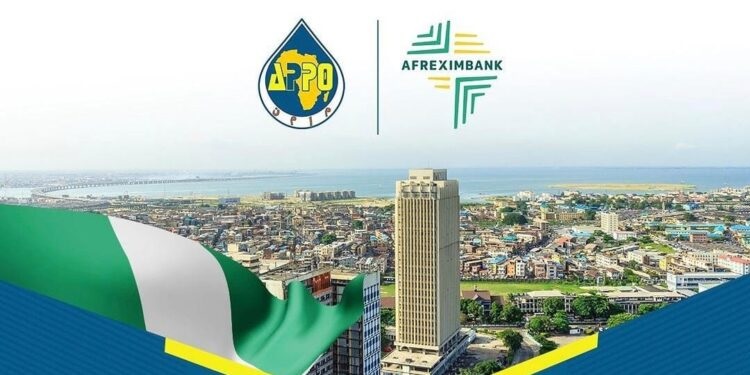By John Ikani
Senator Heineken Lokpobiri, the Minister of State for Petroleum Resources (Oil), disclosed that out of the 18 nations in the African Petroleum Producers’ Organisation (APPO), only Ghana and South Africa opposed Nigeria’s bid for the African Energy Bank (AEB).
Lokpobiri noted that the AEB’s capital is projected to grow from $5 billion to $120 billion in the next three to five years.
The minister shared these details in response to a local media outlet – THISDAY’s questions about the benefits of the financial institution for Nigeria and the challenges faced in securing the bank’s headquarters, among other topics.
He detailed how Nigeria fulfilled all six evaluation criteria, allowing it to be chosen as the host for the bank’s headquarters. He emphasized that Nigeria would gain from the bank through increased financing, job opportunities, and other economic benefits.
Recently, Lokpobiri announced that Nigeria won the bid to host the bank at a special meeting of APPO’s Council of Ministers, which represents oil-producing countries in Africa.
The AEB, backed by APPO and the African Export-Import Bank (Afreximbank), aims to invest in oil and gas projects across Africa and will begin operations later this year with an initial capital of $5 billion.
To set up the bank, each African member country must contribute at least $83 million, totalling about $1.5 billion, with Afreximbank and APPO matching this amount as founding members.
The additional $2 billion needed will likely come from other investors, such as sovereign wealth funds from the Middle East.
Responding to THISDAY’s enquiry, the minister highlighted that the bank’s initial $5 billion capital, equivalent to N7.5 trillion at the Nigerian Autonomous Foreign Exchange Rate Fixing (NAFEX), is expected to grow to $120 billion in three to five years.
He observed that there is increasing confidence among African nations and the global investment community to invest in the continent’s oil and gas sector, particularly in APPO-member countries, thanks to the bank.
“Generally, the rest of Africa and the investing community are beginning to have more confidence to invest in the sector, not just in Africa particularly in APPO as a result of the bank.
“Out of the 18 member countries, only two, Ghana and South Africa who were also contenders were opposed to Nigeria’s bid. The rest supported Nigeria’s nomination.
“Thus, the bank is starting with $5 billion equivalent to N7.5 trillion if you convert it to our NAFEX exchange rate. The projection is that between three to five years, the bank is projected to grow to $120 billion in asset base.”
The minister mentioned that the federal government and other stakeholders are addressing the few remaining obligations within the next 90 days to finalize the bank’s establishment in Nigeria.
These obligations include signing the necessary agreements and setting up the bank’s headquarters.
Lokpobiri expressed satisfaction with Nigeria winning the bid, stating that it was a shared achievement rather than a personal one. He said, “satisfied that we had an objective to get the hosting right and we went for it and eventually got it.”
He credited President Bola Tinubu for providing the essential support needed for the bid.
“And then to Nigerians and then APPO and the rest of Africa for coming up with this ingenious idea of finding a lasting solution to our funding problems in the oil and gas sector.
“If I make it personal, it reduces the value and that is why I am saying that we set out with the objective of winning the hosting rights. So congratulations not to me but to Nigerians, Mr. President and all Africans,” he said.
Commenting on the bank’s benefits, Lokpobiri emphasized that Nigeria, as a leader in Africa’s oil and gas industry, faced significant challenges in securing funding and access to finance.
“With the bank, financing will be available, there would be employment and a long string of value addition,” he said.
Explaining the government’s efforts to win the bid, Lokpobiri mentioned that six criteria were crucial.
These included ratifying the bank’s charter, providing an appropriate headquarters building for initial operations, and offering free land for the bank’s permanent headquarters.
He added: “We also surpassed the bank’s initial funding contribution, which was put at 1.5 per cent of the total sum. Other technical issues considered were security, the number of flights that come into each country, and then the business landscape of each country, and Nigeria came tops after the evaluation.”




































